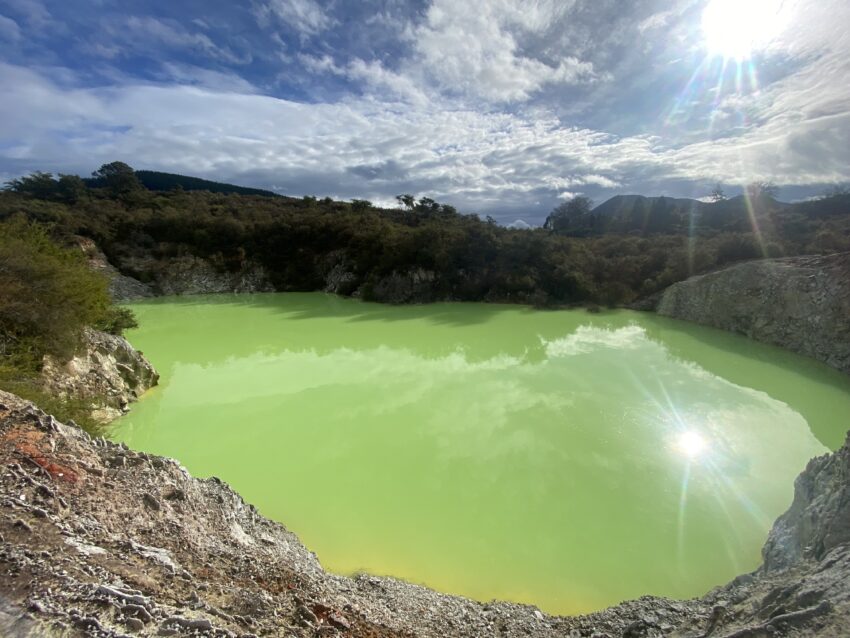Kia ora,
it is mid-winter here. The light is currently dimmed by a thick grey fog. What a sight! We bought an extra heater to the bedroom. These kiwi homes are incredibly cold!
I have been wondering about hierarchy and professional self-esteem.
I come from a work culture where hierarchy is almost a word from the past. At least in the form of being afraid to speak up or feeling inferior to others at work. During my medical career I have always felt uncomfortable when nurses, hospital cleaners or i.e. logistics professionals seem to give way just because I am a doctor. In all honesty, I try to acknowledge them like I would anyone outside the hospital walls. So, please, all of you respected nurses and other co-workers, do come and talk and ask questions. I appreciate them.
In NZ, Christchurch hospital, I sense the steps of hierarchy as steps of responsibility and expectations. At certain level you are expected to see more patients than at entry level, make more decisions or at least more suggestions of decisions. My own professional identity is still a bit lost here. My well-rooted sense of (almost solitary) responsibility has been offered a new view of shared responsibility and educative leadership by the emergency medicine seniors. Not to say that hasn’t existed in Finland, it indeed has. The few seniors in Finland are doing an amazing job in their pioneer positions, but from a trainee point-of-view the support has often been wellwilled and knowledgeable yet inconsistent. I appreciate the structured, shared responsibility here in NZ but still struggle with the timing of discussing with a senior, how to present my case and sometimes what to present. An interesting experience of growing and professional self-reflection.
Am I a good doctor? Am I enough? Am I really doing this? If somebody would have paid me each time I have posed those questions to myself, I would be rich. I have gone through deep and rough with my professional self-esteem already before coming to NZ. The current experience, I want to think, is mending some of the potholes created by the previous storms.
I like wearing scrubs because we all wear them, nurses and docs, clericals, hospital aids and allied health professionals. We make the team. That is a powerful feeling. The almost pyjama-like outfit is quite practical and down-to-earth. I have never been comfortable in a white coat. In fact, it makes me feel like I was playing a doctor. I guess in many ways I am a prime example of the impostor syndrome.
The syndrome grows from the sensation that I will never make it to med school (well, I sure did!) and my perfectionist personality. There are also the experiences where I have felt underrespected and mistrusted not because of me in person but my ”wrong” background in medicine and that before medical school. Here I see young trainees and other resident doctors presenting cases with confidence and well selected words. I am impressed. This said, thinking straight, my fear of not being capable in emergency medicine in NZ, has in great deal disappeared. I am cabable, I just need to find the best way to exercise my skills and make them better.
And hey, don’t get me wrong, this is not depression but an internal professional search and (finally an interesting personal) journey that some never get to do. It all still comes down to the fact that I actually like what I do. Here in NZ, with the safety created by like-minded emergency medicine peers and the clear roles, it has actually been an eye-opening positive experience. There is so much to learn.
And I love to learn.
Whereas in the last ED’s I have worked in Finland nurses and doctors wore the same color of scrubs, here we wear a distinct color. Resident medical officers wear blue, nurses green, clerical staff gray, social workers purple and so on. Senior docs wear black. Black is the color to aim for, then.
The picture in this letter is from from the geothermally active Northisland of New Zealand. The lake was that green in reality, pH 2, no movement at all. Just nearby the depths of the earth come boiling, steaming and bubbling up and having seen them makes all of the above thoughts just a part of life, not the whole of it.
Ngā mihi, my friends, be well,
Reetta
P.S. Here is a link to a short introduction about the impostor syndrome in medicine. It does exist in many other professions as well. I guess I am not the only one! https://www.ncbi.nlm.nih.gov/pmc/articles/PMC7571643/


Hei, Reetta!
Hieno kirjoitus. Mäkin usein ihmettelin et miks pitää pukeutua erilailla tai eri väriin. Samoja ihmisiä ollaan ja kai voisi olla kyltti rinnassa joka erottaa ammattinimikkeet toisistaan. Ja onko sillä niin merkitystä et kysyy joltain sairaalan henkilökunnalta jotain ja jos se ei tiedä niin varmaan ohjaa sinut eteenpäin.
Ihana kun kirjoitat sieltä! Sä kyllä pärjäät, leuka pystyyn, sä oot Reetta paras ja ihanin lääkäri kenen kanssa oon saanut tehdä töitä!
Niinpä, tiimityö ja työkavereita. Olen oppinut niin paljon kaikilta ammattikunnilta! Puhumattakaan, että olen oppinut tuntemaan monia hyviä tyyppejä.
Tack Reetta för dina intressanta tankar och funderingar , du kommer att vara många erfarenheter rikare när du kommer hem igen.
Det är sant. Ju mera olika erfarenheter man får desto mera kräver man dom också.